US election: Anti-Trump floor vote fails at convention
- Published
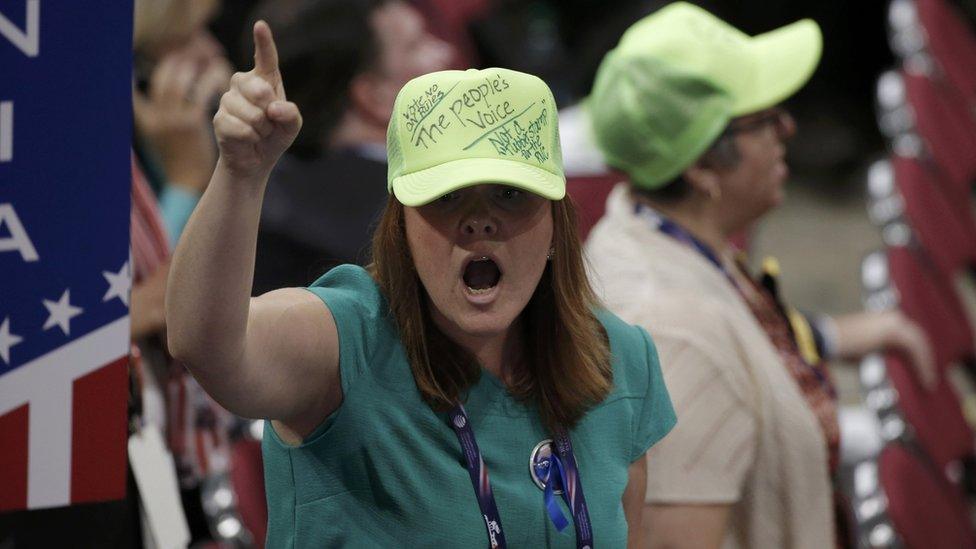
There was uproar when an attempt to force a vote on the rules was quashed
Anti-Trump delegates have failed in their final push to block Donald Trump's nomination at the party's convention in Cleveland.
A vote that would allow delegates to back a candidate of their choice was quashed when three states reportedly backed out.
Some said the RNC sabotaged their efforts on purpose.
The push was the last gasp for those who hope to see a different Republican candidate get the nomination.
The nomination of Mr Trump has been a source of conflict in the party.

A rebellion quashed - Anthony Zurcher, BBC News, Cleveland
It may have been a last gasp. It may have been a death rattle. But the #NeverTrump forces demonstrated on Monday afternoon that there was still some life left in them.
While it's clear that the eventual adoption of the pro-Trump rules was never really in doubt, a roll-call vote would have been an embarrassing show of dissent from the delegates - something Trump's team wanted to avoid at all costs.
Despite their best efforts, however, cracks in the Republican foundation were quite visible at the start of a week in which the party is desperate to put its best foot forward.
Read more: Republican unity frays as convention opens

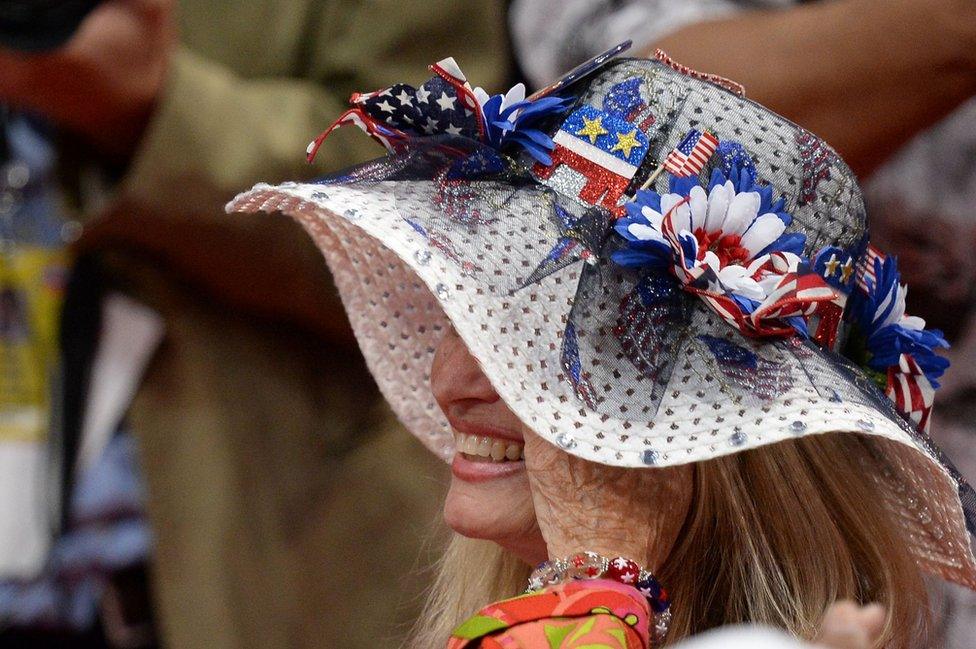
There were many interesting hats
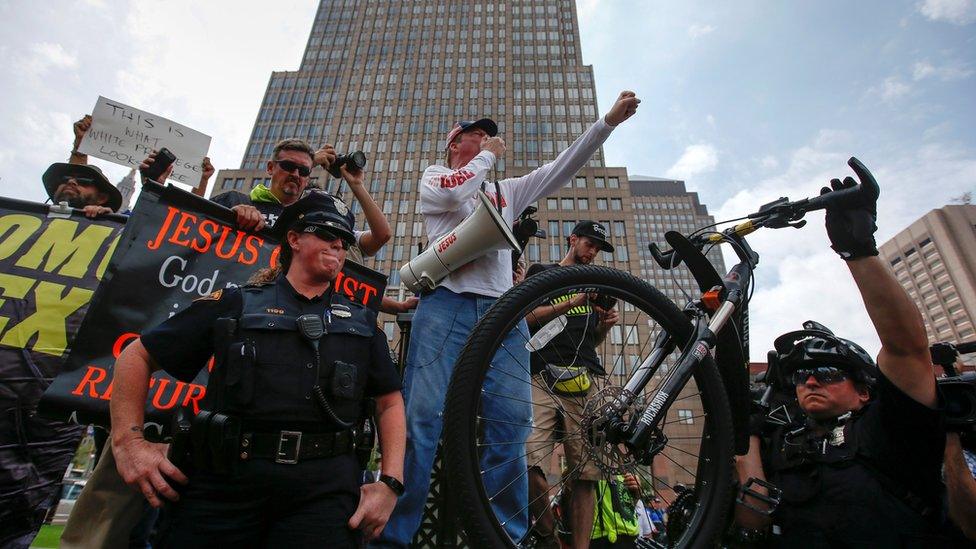
Trump supporters clashed with opponents outside
The long-simmering tensions between Trump and anti-Trump factions in the party broke into open warfare earlier on Monday.
Former House Speaker Newt Gingrich told ABC News "the Republican party has been awfully good to the Bushes and they're showing remarkably little gratitude".
The two former presidents, George HW Bush and George W Bush, have refused to endorse Mr Trump.
Mr Trump has criticised the younger Bush over the Iraq War and the 9/11 attacks, and constantly mocked Florida Governor Jeb Bush during his unsuccessful candidacy.
Protesters in Cleveland chanted "Donald Trump has got to go"
His top aide Paul Manafort launched a stinging attack on the governor of the state hosting the convention, the popular John Kasich, describing his decision to stay away as an "embarrassment".
Former nominee Mitt Romney has also refused to attend, voicing concerns over Mr Trump's tone and extreme stance on immigration.
Among the speakers due to appear on Monday evening are Mr Trump's wife Melania and Iowa Senator Joni Ernst, on a theme of Make America Safe Again.
The convention begins amid high tensions, a day after a man killed three police officers in Baton Rouge, prompting Mr Trump to say the country was falling apart - a claim strongly disputed by President Barack Obama.
People are not allowed to take guns into Cleveland's Quicken Loans Arena, which is hosting the four-day event, or within a secure zone outside.
But some people were photographed openly wearing guns nearby.
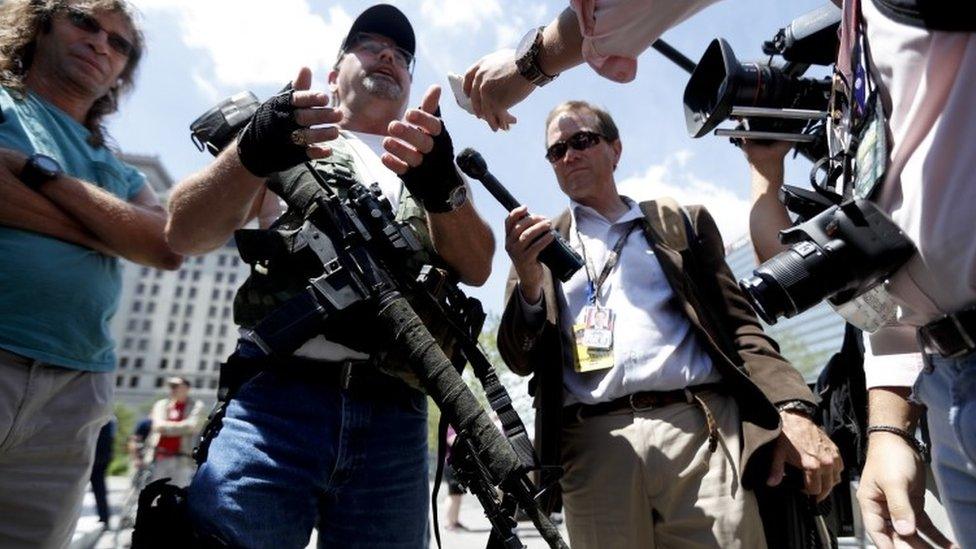
Police want to temporarily ban a law that allows licensed gun owners to carry their weapons in public
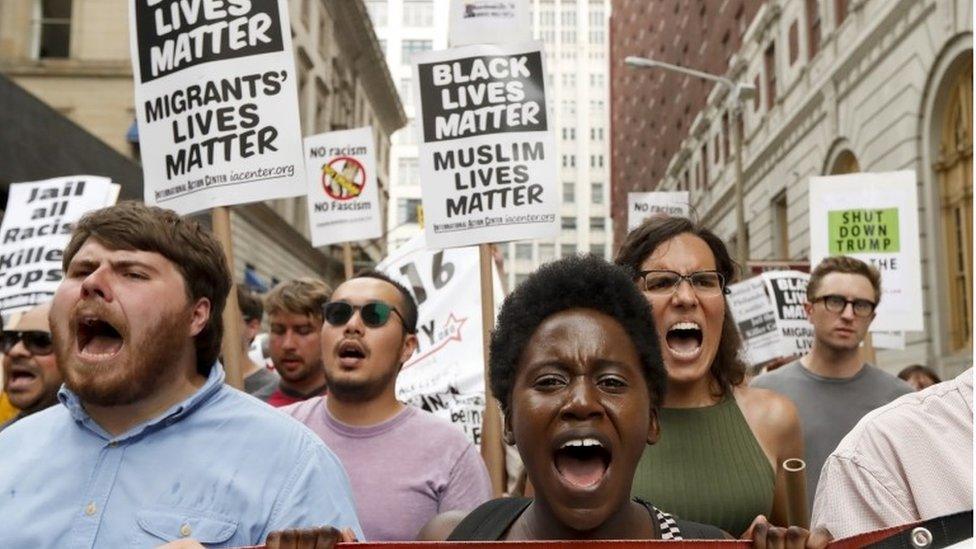
Protesters rally outside the Republican National Convention
Cleveland police have asked Ohio's governor to suspend open-carry gun rights during the convention but he said he did not have the power to.
Thousands of federal and state law enforcement officers have descended on the city over the past week in preparation for the convention, ramping up security protocols as delegates, attendees and demonstrators pour into Cleveland.
About 50,000 people are expected to travel to Cleveland during the four-day event, with protests and rallies expected to take place throughout the week.

A convention - all you need to know
What's the point of a party convention anyway?
1. What's the point? Each party formally nominates its candidates for president and vice president, and the party unveils its party platform, or manifesto.
2. Who is going? There are 2,472 delegates attending, selected at state and congressional district conventions, and representing each US state and territory. Plus 15,000 journalists and thousands of other party grandees, lawmakers and guests.
3. Who isn't going? Some senior figures who don't like Donald Trump have stayed away, including two ex-presidents named Bush, former nominee Mitt Romney and Ohio Governor John Kasich.
4. What's the schedule?
Monday speakers - Melania Trump, Senator Joni Ernst, former NYC Mayor Rudi Giuliani
Tuesday - House Speaker Paul Ryan, New Jersey Governor Chris Christie
Wednesday - VP nominee Mike Pence
Thursday - Donald Trump, introduced by daughter Ivanka
